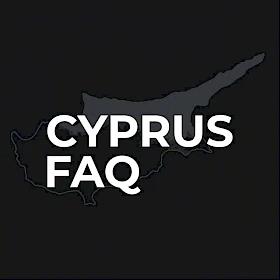Air and Water Quality in Cyprus 2025: Dust, Spills, and the State of the Water Supply
In 2025, Cyprus faced environmental challenges: dust levels three times above the norm, oil spills near Limassol, the loss of 12 “Blue Flags” on beaches, but tap water remains safe.
Air Pollution in Cyprus
The island’s main environmental issue is air pollution caused by dust. In 2024, Nicosia ranked among the most polluted capitals of the EU: PM2.5 and PM10 particle levels were nearly three times higher than the World Health Organization’s recommendations.

Particularly dangerous are “dust episodes” — periods when winds carry dust from the Sahara and the Middle East. On such days, particle concentrations can exceed the norm several times. The situation is worsened by climate change, increased transport, and activity during the tourist season.
Sea Water Quality
In the summer of 2025, a number of incidents affected Cyprus’s marine environment:
-
in May, the British base declared the water at Lady’s Mile beach unsuitable for swimming;
-
in June, an oil spill occurred in the Moni area;
-
in July, a fuel oil leak polluted the sea near eastern Limassol.
Due to these incidents, Cyprus lost 12 “Blue Flags” in 2025 — international awards confirming the cleanliness and safety of beaches.
Freshwater Shortage
Cyprus traditionally suffers from a shortage of freshwater. Winter rainfall is decreasing, reservoir levels are falling, and droughts are becoming longer. The government is actively developing a desalination system. However, this is an expensive and energy-intensive process, carrying environmental risks due to the discharge of brine back into the sea.
Tap Water in Cyprus
At the same time, research by the University of Nicosia confirms: tap water in Cyprus remains safe. Although microorganisms are detected in the pipes, they do not pose a health threat and in some cases even help stabilize water quality.
The main problem is outdated infrastructure. It is estimated that up to 40% of tap water is lost due to leaks, which reduces system efficiency and increases the risk of secondary contamination.
You may also be interested in:
- Traffic changes at Paphos Airport due to second-phase works
- Ayios Tychonas: temporary water supply interruption on November 11 due to maintenance works
- Fashion bazaars and a Halloween market: where to go in Cyprus this weekend
- A police officer in Cyprus was disciplined for false claims about “saving a woman”


